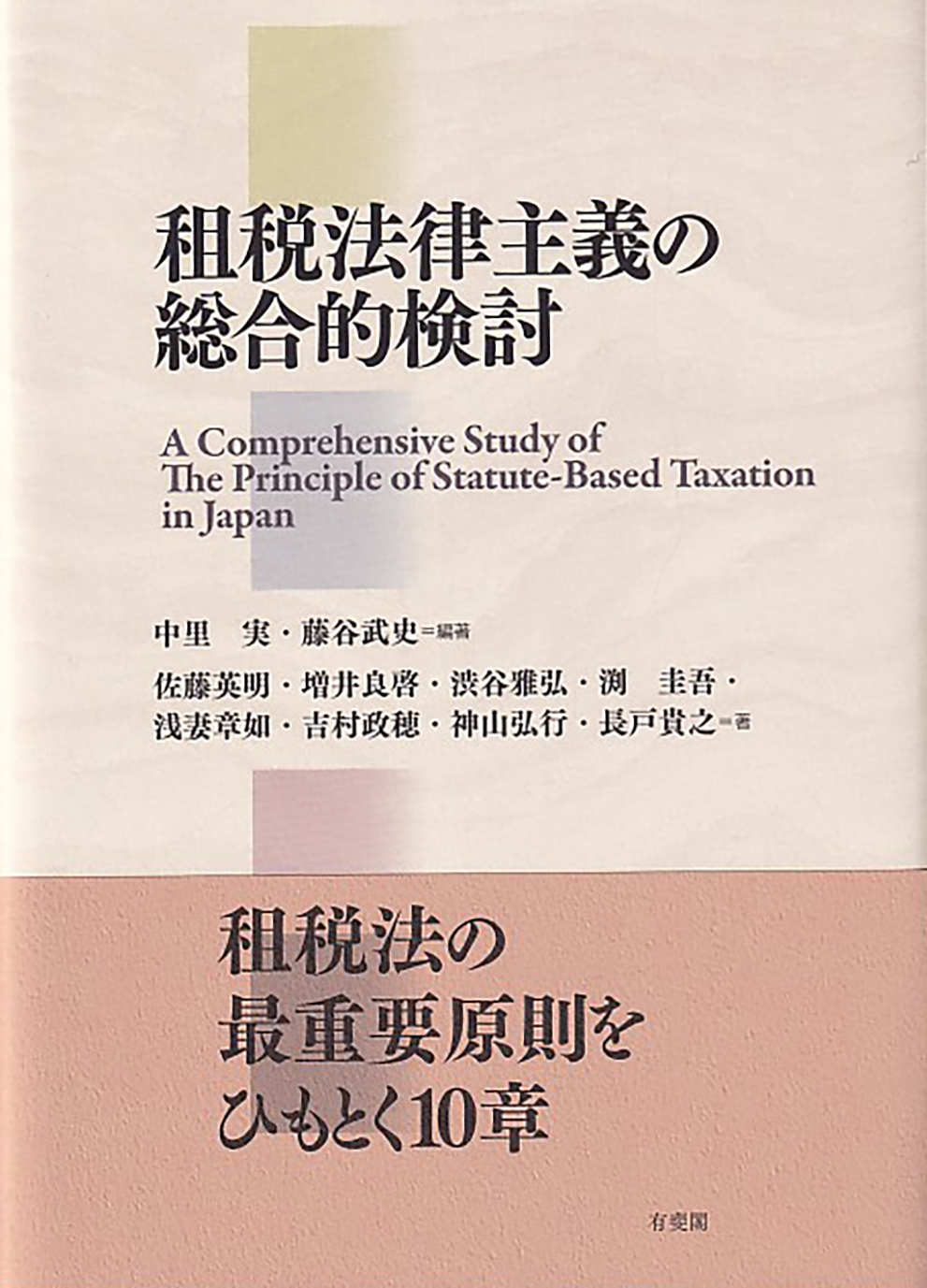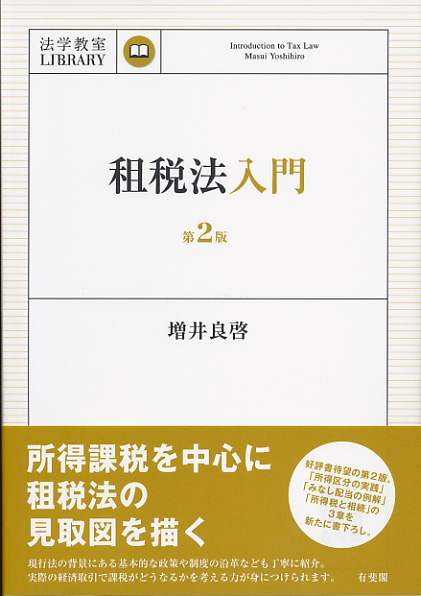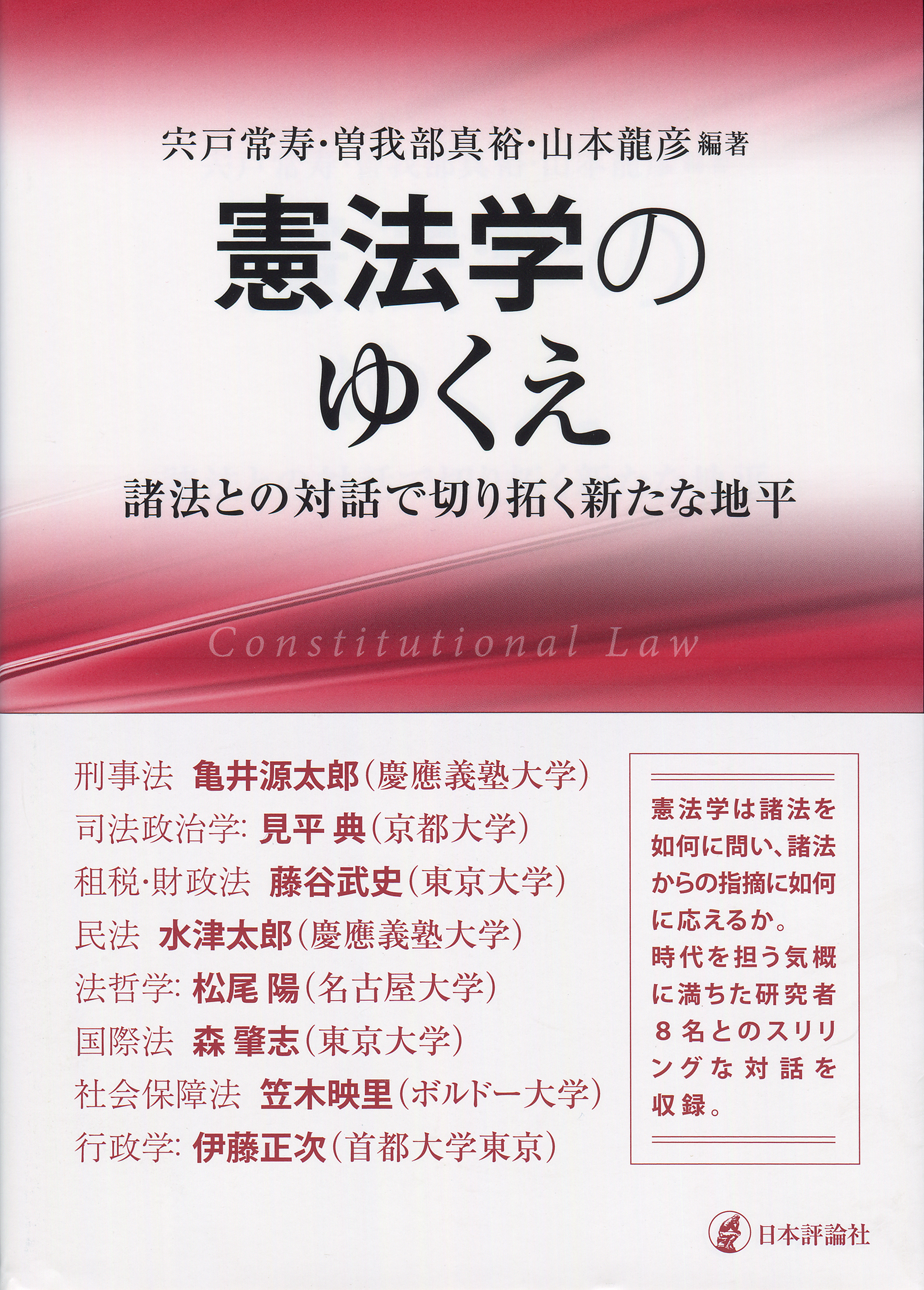
Title
Sozei-Horitsu Shugi no Sougoteki Kento (A Comprehensive Study of The Principle of Statute-Based Taxation in Japan)
Size
382 pages, A5 format, hardcover
Language
Japanese
Released
December, 2021
ISBN
978-4-641-22808-5
Published by
Yuhikaku Publishing Co., Ltd.
Book Info
See Book Availability at Library
Japanese Page
The principle of statute-based taxation is a legal principle that posits that the taxes imposed on citizens and corporations must be established by statutory laws enacted by the democratic legislature. In other words, regardless of their necessity or propriety, the imposition of taxes cannot be decided by the government alone. This principle dates back to the Age of Revolution in the Western world and forms the foundation of representative democracy that continues to the present day. The principle of statute-based taxation also enables citizens and companies to anticipate the tax consequences of their economic activities; such tax predictability is particularly important in the present-day economy. For these reasons, the principle of statute-based taxation has been esteemed as the most important principle of Japan’s tax system.
While amply recognizing the value of statute-based taxation laid out above, this book questions whether conventional discourse on this principle has fallen into abstraction and formalism isolated from reality. Even if the fundamental values are unchanged, so long as contemporary politics, economics, and society continue to evolve dramatically, the principle of statute-based taxation must be updated appropriately. For example, global companies are now increasingly beyond the reach of sovereign states’ territorial jurisdiction. Thus, it is almost imperative for sovereign states to internationally coordinate their sovereign taxing powers by establishing international tax principles that infringe upon the sovereignty of national assemblies on matters related to tax. Here we find a tense relationship between this contemporary development and the traditional view of the principle of statute-based taxation. Another example is how to address tax avoidance. Traditionally, the principle of statute-based taxation has been associated with the idea of tax security and predictability for taxpayers. The current prevalence of international tax avoidance schemes encourages some people to call for the introduction of general anti-avoidance rules, which would, in theory, prevent any types of unanticipated efforts to avoid tax at the cost of taxpayer’s predictability. Besides, the rapid digitization of contemporary society (and tax administration) is also changing the nature of information asymmetry between tax authorities and taxpayers. In the past, taxpayers had private information, and the tax agency had the legal authority to investigate within the due-process constraints; this is not for granted in the digitalization era. Digital society’s architecture can be designed to grant (perhaps excessively) effective power to tax authorities. Recall that one of the values served by the principle of statute-based taxation is to protect citizens from (potentially) arbitrary taxing power. Thus, digitalization gives rise to the new challenge of how the principle of statute-based taxation should check (or not) such an emerging digital tax administrative architecture.
This book seeks to elucidate the current state and potential of the principle of statute-based taxation by comprehensively exploring contemporary issues surrounding the principle of statute-based taxation in Japan. Part 1, comprising four chapters, empirically evaluates whether the conventional discourse on the principle of statute-based taxation still captures reality and identifies some blind spots of the conventional discourse. Part 2 utilizes economic analyses to re-evaluate the principle of statute-based taxation from a more substantial and functional standpoint. Part 3 traces the evolution of the principle of statute-based taxation in the context of globalization and identifies future challenges. Part 4, on the ground of comparative law and legal history, provides viewpoints that relativize conventional views on the principle. This book offers theoretical guidance to reinvent the traditional principle of statute-based taxation so that it will remain relevant for Japan’s tax system in the coming years.
(Written by FUJITANI Takeshi, Professor, Institute of Social Science / 2022)



 Find a book
Find a book


 eBook
eBook


